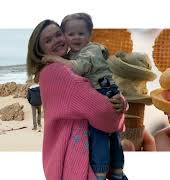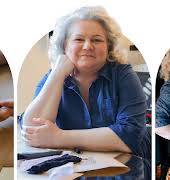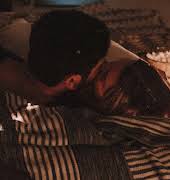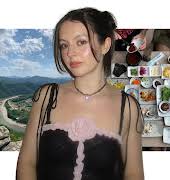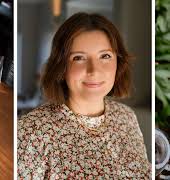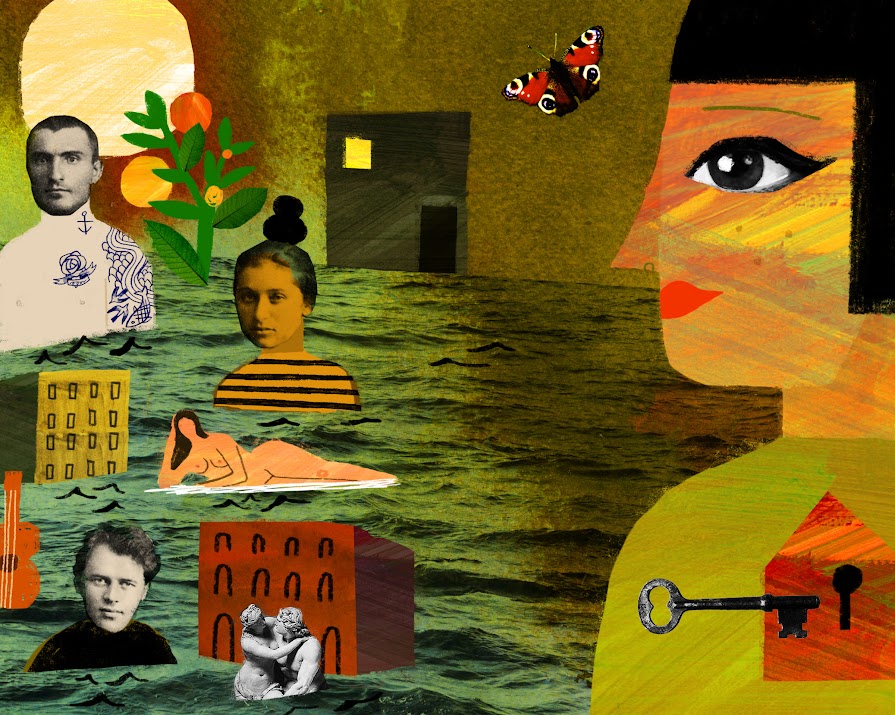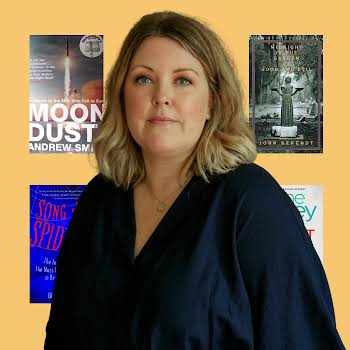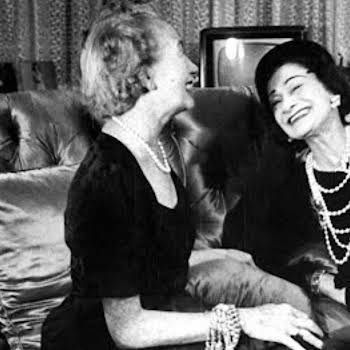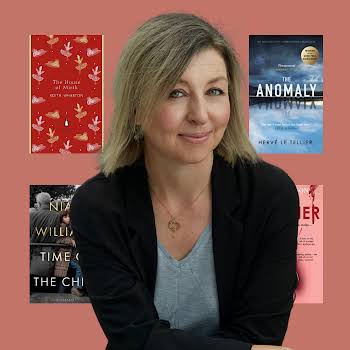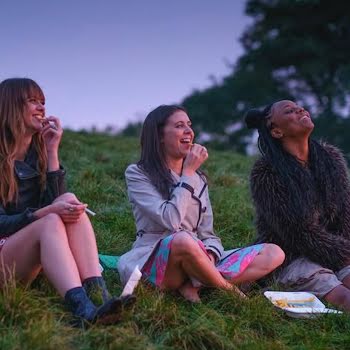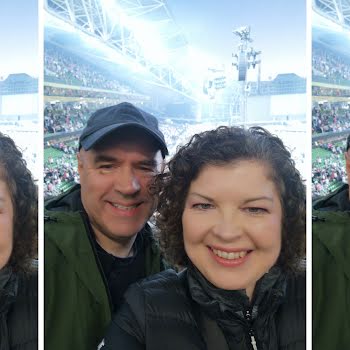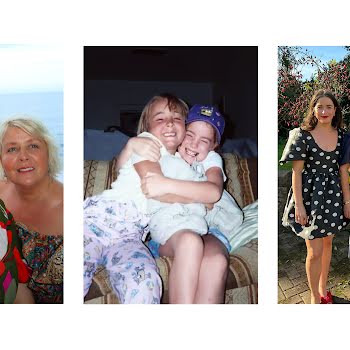
‘This is what comes to mind when I think of my twenties – being at sea’
By IMAGE
04th Dec 2023
04th Dec 2023
For the better part of her twenties, Lucy Sweeney Byrne travelled the world in search of happiness and inspiration. What she eventually learned was that she, like everyone else, needed a home.
To be at sea, to stay afloat; to be in perpetual motion, undercurrents pulling and waves sloshing, and yet to stay still, to go absolutely nowhere – this takes skill, and grit, and, if not speaking metaphorically, enormous core strength.
I certainly had grit, and a little skill. I had fuck all core strength, but, luckily, I am speaking metaphorically.
This is what comes to mind, when I think of my twenties – being at sea. My years of drifting, when I had the experiences upon which the short stories in my book, Paris Syndrome, are based, and the period in which I wrote them. From the age of 23, the age at which I finished my degree and broke up with my first love, my boyfriend of seven years, to the age of 28, when I met the man I’ll marry, I was constantly travelling (or I was home, in my dad’s house in Greystones, working in The Pieman Café or, later, The James Joyce Centre in Dublin, and growing restless, waiting to have accrued enough money and energy and courage to be off travelling again).

It could be said, perhaps more accurately, that I was, for those years, in a constant state of seeking. I travelled the world hoping to find something, never quite managing, trying (and failing) again (fail again, fail better…).
What was I seeking? Well, that’s no mystery: I was seeking excitement, fulfilment, a place where being in my skin would finally feel alright. I was seeking wild nights with strangers, bursts of laughter, the taste of new teeth; I was seeking aching views, the sound of winds through unknown trees, the calls of unknown birds, and soft snow in February, and dusty heat slicking across my brow in summer; I was seeking jazz bars and dive bars and a different kind of light; I was seeking spices cooked in strange and delicious ways; cooked at dusk, maybe, by a stranger, in a bustling garden somewhere just outside a city. I was seeking things to write about, faces and conversations and notable events, all laden down, dripping, with newness.
(Really, of course, I was seeking love, like everyone else – the travelling around was just my particular way of trying to find it, and to keep myself entertained, until I did.)
I was also seeking, I can see now, a way to live in the world without consequences. I have always been one of those people who is better in a room full of strangers than in a room with people I know. Or, heaven forfend, people I kind-of-sorta-know, with whom I have used my initial store of conversation, but don’t know well enough to pursue silence with comfortably. By moving to other parts of the world for periods of three to six months at a time (in order: London, Madrid, New York, Berlin, Oaxaca, and then Mexico City, with a short but significant little trip driving around Texas and Louisiana thrown in the middle), I could get to know people just enough to drink with them, to have fun nights out with them, to be shown cool spots for brunch with them, and to have those fascinating early conversations with them – those conversations that work a little like advertisements, in which everyone involved endeavours to be a cool, funny, interesting and happy version of themselves, before all the real life and Tuesday blues and general, mild depression kicks in. I could also present this version of myself. Someone intelligent, liberated, fun, wild, perhaps even sexy. I could allow white lies to speckle my chatter and not worry too much about the consequences. I could sleep with people and not text them back. I could pretend I was a goddamn Russian heiress (à la Anna Sorokin/Delvey) if I really wanted to. I could escape everything I had been in my teens; the less attractive one, the chubby one, the over-emotional one, that one who cried at parties, the one who drank too much, the one from a broken – an, at the time, still breaking – family. And all of it was okay, wasn’t too appallingly immoral, because I had a greater purpose for being there, for talking to them, for partying or lying or ultimately ghosting all of these people I might meet – I was there to write about it.
“Lonely and weary, I made the terrible, wonderful discovery – that writing is not enough to live on. A person needs a home.”
Writing for me has been something to live for, and I mean that in more than one way. It has been the outlines and the content of my reality. How to put it? It’s been all I had. All I could think of, to force myself out of bed in the morning. All I could think of, to soothe myself to sleep at night. I lived on the fumes of writing for years. The fumes of self-expression, of ambition, of revenge, of truth, of believing myself to have some higher purpose, above the petty bullshit of daily life – I’ve convinced myself and nourished myself on all the myriad reasons people decide to write. It was only in the final years of my twenties, around the time I was finishing up my book, living in Mexico City, in a crumbling apartment (the door of which was thumped hard for an hour every night for my whole first week of being there, and the stairs of which broke away during a particularly strong earthquake), lonely and weary and fresh out of strength, that I made the terrible, wonderful discovery – a discovery I had been suspecting for a while, feeling my soul grow thin and brittle and sore with a longing to be touched – that writing is not enough to live on. That, concordantly, travelling forever, seeking forever, just to be able to write about it, is really no way to live. A person needs a home, a base. Somewhere constant, and safe. I realised that I probably needed to stop lighting a match behind me, with every room I left.
That was my twenties. That’s what I wrote about. Being a bit lost. Being at sea. Now, I’m in love, I’m found, and I’m indulging in that divine, deluded phase of believing myself to have discovered at least some of the answers. How to live. How to be.
It’s nice, for now. Let’s see.

Paris Syndrome: A Collection of Short Stories by Lucy Sweeney Byrne (Banshee Press, €15) is out now.
This article first appeared in the September 2019 issue of IMAGE Magazine. Illustration by Anne O’Hara.




